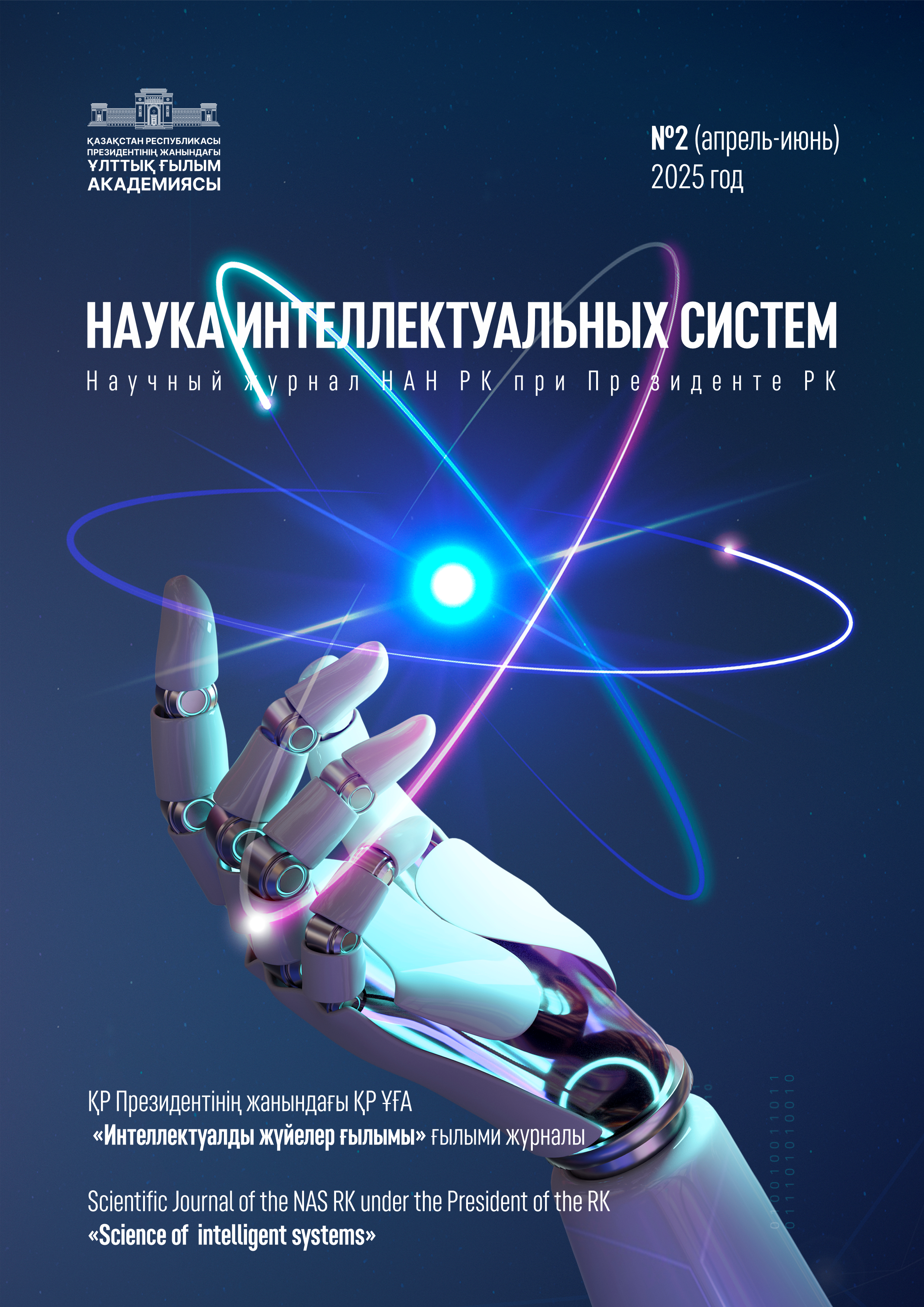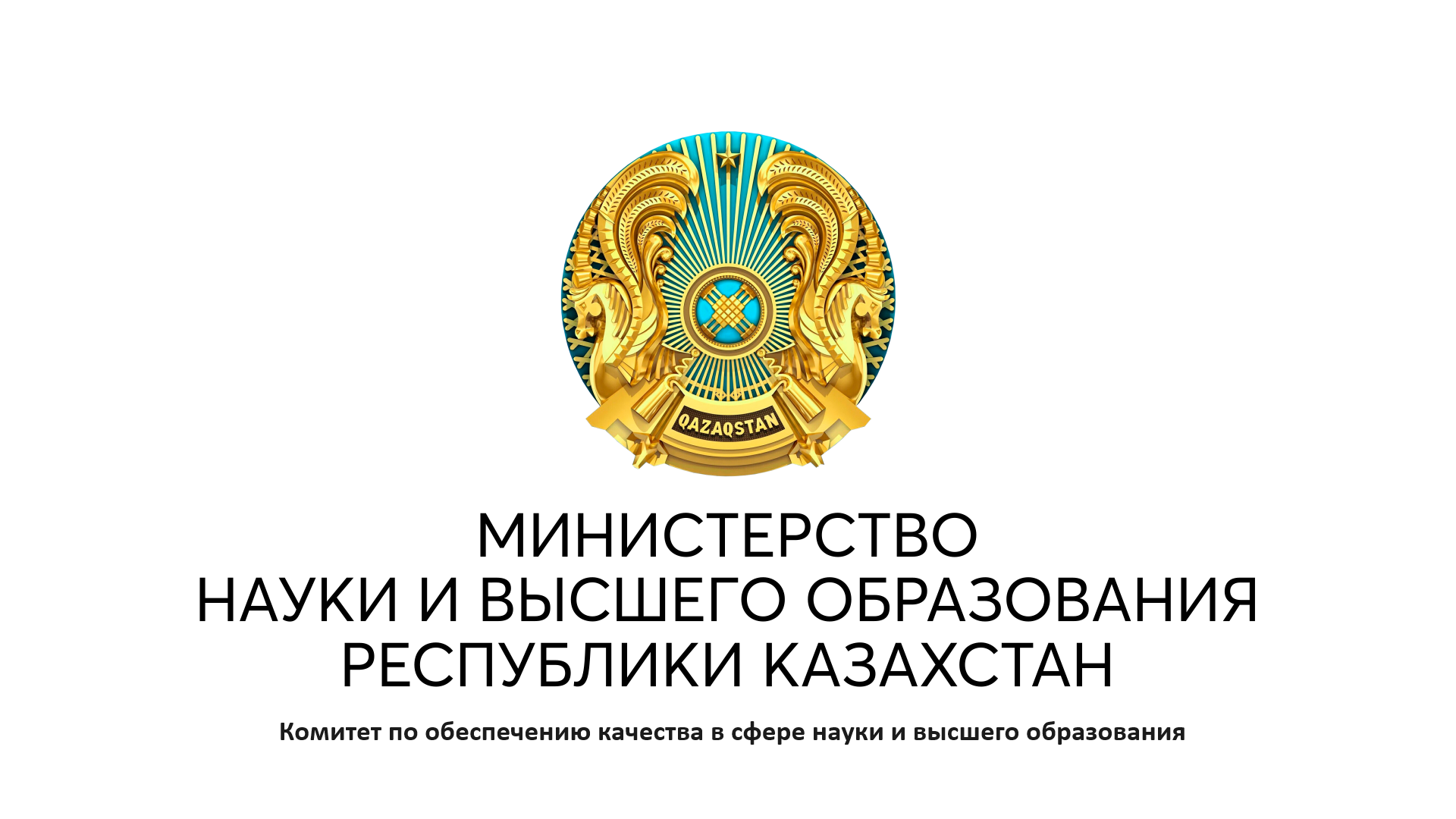ИСПОЛЬЗОВАНИЕ ИСКУССТВЕННОГО ИНТЕЛЛЕКТА ДЛЯ РАННЕГО ВЫЯВЛЕНИЯ САХАРНОГО ДИАБЕТА НА УРОВНЕ ПЕРВИЧНОЙ МЕДИКО-САНИТАРНОЙ ПОМОЩИ В РЕСПУБЛИКЕ КАЗАХСТАН: ОДНОЦЕНТРОВОЕ ИССЛЕДОВАНИЕ С МОДЕЛИРОВАНИЕМ КЛИНИЧЕСКОГО ВНЕДРЕНИЯ
Аннотация
Сахарный диабет 2 типа (СД2) и предиабетические состояния являются одной из ведущих проблем общественного здравоохранения, демонстрируя рост распространённости как в мире, так и в Республике Казахстан. В условиях страны наблюдается значительное увеличение числа больных и смертности, что подчёркивает актуальность раннего выявления нарушений углеводного обмена. В последние годы особое внимание уделяется применению искусственного интеллекта (ИИ) и машинного обучения (МО) для диагностики и скрининга диабета. Настоящее исследование было направлено на оценку эффективности моделей ИИ для раннего выявления СД2 и предиабета на уровне первичной медико-санитарной помощи (ПМСП) в Казахстане на примере выборки из 486 пациентов. Построенные алгоритмы (логистическая регрессия, случайный лес, градиентный бустинг, XGBoost) продемонстрировали высокую точность прогнозирования (AUROC до 0,86), устойчивую производительность в подгруппах и клиническую пользу в анализе принятия решений. Внедрение ИИ-модели позволило снизить нагрузку на лабораторные тесты при сохранении высокой чувствительности выявления нарушений углеводного обмена. Полученные результаты свидетельствуют о перспективности интеграции ИИ-инструментов в практику ПМСП Казахстана, однако требуют дальнейшей мультицентровой валидации, анализа затрат-эффективности и разработки регуляторных механизмов для безопасного и этичного использования.
Ключевые слова:
сахарный диабет, искусственный интеллект, машинное обучение, алгоритмБиблиографические ссылки
1. Wu Y., Xu M., Zhang L., et al. Artificial intelligence in diabetes management: current and future perspectives // Diabetes Res Clin Pract. – 2024. – Vol. 207. – P. 110579. – PMID: 37963240.
2. Contreras I., Vehi J. Artificial intelligence for diabetes management and decision support: literature review // J Med Internet Res. – 2018. – Vol. 20(5). – P. e10775. – PMID: 29724708.
3. Islam M.M., Ferdousi R., Rahman S. Explainable artificial intelligence for diabetes prediction and decision support // Informatics Med Unlocked. – 2022. – Vol. 34. – P. 101123. – PMID: 35530521.
4. Zhang Y., Wang J., Chen H., et al. Deep learning algorithms for the prediction of type 2 diabetes: a systematic review // BMC Med Inform Decis Mak. – 2023. – Vol. 23(1). – P. 88. – PMID: 36869554.
5. Ahmad M., Khan A., Saeed A. Machine learning approaches in predicting type 2 diabetes mellitus: recent advances // Comput Methods Programs Biomed. – 2024. – Vol. 242. – P. 107834. – PMID: 38892361.
6. Luo W., Phung D., Tran T., et al. Predicting diabetes risk using electronic medical records and machine learning // Artif Intell Med. – 2022. – Vol. 126. – P. 102236. – PMID: 35085729.
7. Farooq M., Hassan M., Javed A. Advanced supervised machine learning for early classification of type 2 diabetes mellitus // Front Med. – 2025. – Vol. 12. – P. 1518923. – PMID: 40156328.
8. Zargoush M., Ehsanifar A., Komeili A., et al. Predictive–prescriptive machine learning for type 2 diabetes care // Sci Rep. – 2025. – Vol. 15. – P. 5432. – PMID: 39980565.
9. Alotaibi F., Baskar A., Mirza T., et al. Performance of machine learning models for prediction of type 2 diabetes: a meta-analysis // Inform Health Soc Care. – 2023. – Vol. 48(3). – P. 234–247. – PMID: 37011421.
10. Cho B., Kim J., Kim H., et al. Development of an AI-based prediction model for early detection of type 2 diabetes using national health screening data // PLoS One. – 2024. – Vol. 19(1). – P. e0289912. – PMID: 38237142.
11. Nurgaliyeva Z, Spatayev Y, Syla S, Yessenbayev B. Paving the way to establishing the digital-friendly health and care information model in Kazakhstan. Int J Med Inform. 2024 Dec;192:105610. doi: 10.1016/j.ijmedinf.2024.105610. Epub 2024 Aug 30. PMID: 39226634.
12. Piera-Jiménez J, Dedeu T, Pagliari C, Trupec T. Strengthening primary health care in Europe with digital solutions. Aten Primaria. 2024 Oct;56(10):102904. doi: 10.1016/j.aprim.2024.102904. Epub 2024 Apr 30. PMID: 38692228; PMCID: PMC11070233.
13. Joseph S, Wang Y, Drinkwater JJ, Jan CL, Sundar B, Zhu Z, Shang X, Henwood J, Kiburg K, Clark M, MacIsaac RJ, Turner AW, Van Wijngaarden P, Ravilla TD, He MG. Effectiveness of artificial intelligence-based diabetic retinopathy screening in primary care and endocrinology settings in Australia: a pragmatic trial. Br J Ophthalmol. 2025 Aug 22:bjo-2025-327447. doi: 10.1136/bjo-2025-327447. Epub ahead of print. PMID: 40846450.
14. Bhambhwani V, Whitestone N, Patnaik JL, Ojeda A, Scali J, Cherwek DH. Feasibility and Patient Experience of a Pilot Artificial Intelligence-Based Diabetic Retinopathy Screening Program in Northern Ontario. Ophthalmic Epidemiol. 2025 Oct;32(5):518-524. doi: 10.1080/09286586.2024.2434738. Epub 2024 Dec 18. PMID: 39693600.
15. Bhaskar S, Bradley S, Chattu VK, Adisesh A, Nurtazina A, Kyrykbayeva S, Sakhamuri S, Yaya S, Sunil T, Thomas P, Mucci V, Moguilner S, Israel-Korn S, Alacapa J, Mishra A, Pandya S, Schroeder S, Atreja A, Banach M, Ray D. Telemedicine Across the Globe-Position Paper From the COVID-19 Pandemic Health System Resilience PROGRAM (REPROGRAM) International Consortium (Part 1). Front Public Health. 2020 Oct 16;8:556720. doi: 10.3389/fpubh.2020.556720. PMID: 33178656; PMCID: PMC7596287.
16. Fava VMD, Lapão LV. Provision of Digital Primary Health Care Services: Overview of Reviews. J Med Internet Res. 2024 Oct 29;26:e53594. doi: 10.2196/53594. PMID: 39471374; PMCID: PMC11558215.
17. Lee S., Oh J., Park S. Artificial intelligence in screening for diabetes and metabolic syndrome: a population-based study // Sci Rep. – 2023. – Vol. 13. – P. 11234. – PMID: 37341192.
18. Thorsen A., Nguyen H., Holmberg M., et al. Integrating AI-based decision support into primary care diabetes screening: implementation study // BMJ Open Diabetes Res Care. – 2025. – Vol. 13(1). – P. e004512. – PMID: 40019745.
19. Orazumbekova B., Satylganova A., Tsoy E., et al. Prevalence of impaired fasting glucose and undiagnosed type 2 diabetes in Kazakhstan // Front Public Health. – 2022. – Vol. 10. – P. 810153. – PMID: 35284393.
20. Abylkassov R., Shalkharova Z., Sarsembayeva N., et al. Epidemiology of type 1 and type 2 diabetes mellitus in Kazakhstan: data from Unified National Electronic Health System 2014–2019 // J Diabetes Res. – 2022. – Vol. 2022. – P. 9847563. – PMID: 36368961.
21. Kiran M., Reddy P., Al-Khassaweneh M. Machine learning and AI in type 2 diabetes: bibliometric and systematic review (1991–2024) // Diabetes Metab Syndr. – 2025. – Vol. 19(1). – P. 102–115. – PMID: 40148210.
22. Hinton W., McGovern A., Coyle R., et al. Risk prediction of type 2 diabetes using primary care electronic health records: a systematic review // BMJ Open. – 2022. – Vol. 12(5). – P. e057989. – PMID: 35597913.
23. Labrique A., Agarwal S., Tamrat T., et al. Digital health and AI in primary health care: opportunities and challenges // Lancet Digit Health. – 2023. – Vol. 5(2). – P. e75–e85. – PMID: 36721245.
24. Mohan V., Pradeepa R., Misra A. Artificial intelligence and machine learning in diabetes care: current status and future directions // Indian J Endocrinol Metab. – 2022. – Vol. 26(1). – P. 10–18. – PMID: 35284265.
25. Anderson J., Chen L., McClellan M. Machine learning for type 2 diabetes: review of applications in risk prediction and clinical decision support // Curr Diab Rep. – 2023. – Vol. 23(4). – P. 185–197. – PMID: 37015425.
26. Hussain M., Park H., Cho Y. Explainable machine learning in healthcare: a case study of diabetes prediction // Comput Biol Med. – 2024. – Vol. 170. – P. 107818. – PMID: 38912311.
27. Rawshani A., Rawshani A., Gudbjörnsdottir S. Mortality and cardiovascular outcomes in type 2 diabetes: global evidence from observational cohorts // N Engl J Med. – 2022. – Vol. 387. – P. 1495–1505. – PMID: 36257070.
28. Wang L., Peng W., Zhao Z., et al. Global prevalence and burden of diabetes, 2000–2021 // BMJ. – 2023. – Vol. 380. – P. e072804. – PMID: 36869436.











